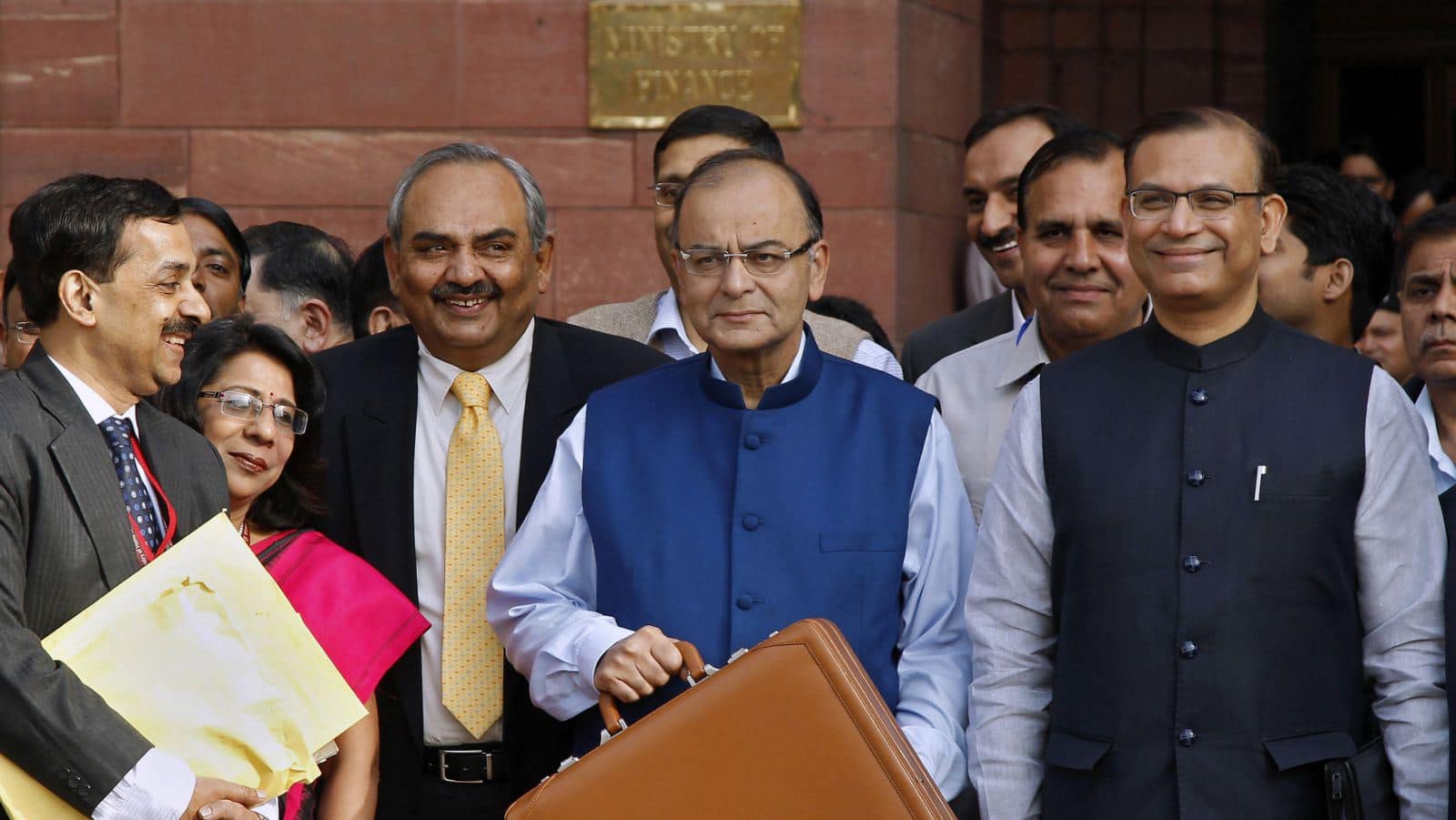As a general perception union budget is all about taxes. Tax reforms, tax exemptions, tax rebates etc. Everyone wants to know what’s in it for them. For them a good budget is that which announces lots of tax sops. This time also people were expecting some tax sops as this is what they presume to be as “Acche din”. But finance minister has to look at the big picture and has to develop a policy which would benefit country at large. This is what he did in the Union Budget 2014. He’s given something to everyone with keeping fiscal prudence intact.
I love the way Mr Arun jaitely, Hon’ble finance Minister of India started with the Budget speech. He first points towards the problems that the country is facing at large like Poverty, High Inflation, slow growth, unemployment, basic amenities, lack of infrastructure & apathetic governance etc. which needs to be addressed and then setting the expectations upfront out of his budget. In his words –
“In the first Budget of this NDA government that I am presenting before the House, my aim is to lay down a broad policy indicator of the direction in which we wish to take this country. The steps that I will announce in this Budget are only the beginning of a journey towards a sustained growth of 7-8 per cent or above within the next 3-4 years along with macro-economic stabilization that includes lower levels of inflation, lesser fiscal deficit and a manageable current account deficit. Therefore, it would not be wise to expect everything that can be done or must be done to be in the first Budget presented within forty five days of the formation of this Government.
The task before me today is very challenging because we need to revive growth, particularly in manufacturing and infrastructure to raise adequate resources for our developmental needs. On the other hand, the task is simple if we accept the principle that we cannot spend beyond our means. We need to introduce fiscal prudence that will lead to fiscal consolidation and discipline. Fiscal prudence to me is of paramount importance because of considerations of inter-generational equity”
Accepting the target of achieving 4.1% fiscal deficit and also setting out the road map to bring it down to 3% by FY 17 itself is brave. Looking at the current state of economy it sounds difficult but as he says “One fails only when one stops trying”.
If you just go through the first 7 paragraphs of the budget speech, you will surely feel confident that “Acche din” are on the way. I am not a fan of Modi government, but these guys sounds to be focused and honest people with a national character. Rest time will tell. For now, lets look at the provisions announced in budget 2014 which will impact the personal finances.
Union budget 2014 – provisions on Direct taxes
1. Starting from the Most sought after announcement i.e. Change in tax slabs or tax rates. There’s no change in the tax rates. But the basic exemption limit in the Income tax slab has been hiked to Rs 2.5 lakh for individuals ageing below 60 years, and Rs 3 lakh for individuals ageing above 60 years i.e. Senior citizens. The new and old tax slabs are as under
2. Investment Limit is Section 80C has been increased from Rs 1 lakh to Rs 1.5 lakh. This includes your EPF contribution, Life insurance policy premiums, Children education fees (tuition fee) , ELSS investments, PPF investments, Housing loan principal payment etc.
3. Investment limit of PPF has also been increased from Rs 1 lakh to Rs 1.5 lakh. So risk averse long term investors may use this instrument for their section 80C tax savings. Do note that even if you don’t want to invest for tax saving, you still can use PPF as investment product.
4. Tax exemption limit u/s 24 for interest payment towards housing loan has also been raised from existing Rs 1.5 lakh to Rs 2 lakh. This is applicable in case of loan towards self-occupied house. (Read : housing loan tax benefits)
Impact on Investments:
There were 2 major changes proposed in case of non-equity mutual funds segment.
1. In non-equity Mutual funds like debt funds, gold funds etc. the holding period for long term capital gain has been increased from 12 months to 36 months.
Also the tax rates on long term capital gains on these funds have been changed to 20% after indexation which was earlier 10% without indexation or 20% with indexation, whichever is less. Now taxation in debt /gold funds is at par with real estate or physical gold tax calculation.
Now arbitrage funds will gain the attention and may suit for short term needs
2. Life insurance policy maturity/surrender proceeds where section 10(10d) does not apply i.e. where the sum assured is less than 10 times of annual premium , will be subject to TDS @2% at the time of payment.
Impact on spending:
1. Now you can save more by quitting cigarettes and Gutka as budget provisions have made them more costly. This will also keep you healthy, so double benefit 😉 You can say that cigarette smoking is not only injurious to your health, its not even healthy for your wallet too.
2. Aerated drinks with sugar contents are also expected to cost more with rise in excise duty.
3. Pricing of Basic LCDs and LED TVs below 19 inches will come down with the reduction of custom duty on TV panels.
4. Mobile phones, Water Purifiers will be cheaper.
Other announcements related to personal finance:
1. Reintroduction of Kisan Vikas Patra, for planned and unplanned savings
2. A special small saving scheme will be introduced encourage savings towards education & marriage of girl child
3. Single demat account is proposed for all types financial transactions
4. Employee provident fund organisation to launch unified account scheme to ensure Provident Fund portability
5.Cheaper Housing Loan & Tax Incentive for LIG – Low Income Groups.
Overall, this budget has benefited almost every pocket and provides a clear vision of government.
Any questions? Feel free to ask in the comments section








 Manikaran Singal is the founder and Chief financial planner at Good Moneying Financial Solutions. He is a CERTIFIED FINANCIAL PLANNER CM and SEBI registered Investment adviser (Regd no. INA 100001620). He’s having 20+ years of experience in financial services space.
Manikaran Singal is the founder and Chief financial planner at Good Moneying Financial Solutions. He is a CERTIFIED FINANCIAL PLANNER CM and SEBI registered Investment adviser (Regd no. INA 100001620). He’s having 20+ years of experience in financial services space.

